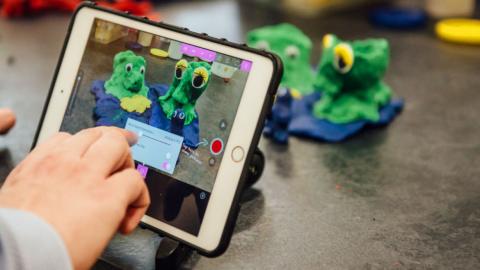Female Filmmaker Friday: Leila Djansi, Fearless Ghanaian Storyteller
Share with friends
"Go out there and do it. Do not expect it to be a rosy path...You have to put in the work."
Leila Djansi is a Ghanaian and American director, writer, and producer. Born in Ghana and growing up in India, Djansi’s original interest was not in film, but forensics. Her ambitions changed towards film, and she credits her parents for being very supportive in this sudden switch in career.
Djansi studied at the National Film and Television school in Ghana, but eventually left for America and continued her education at Savannah College of Art and Design. Her first job in film was working as a writer and producer at Socrates Safo’s Movie Productions. Djansi is the founder of Turning Point Pictures, a production company that makes stories about social issues.
Her first short film, Grass Between My Lips, came out in 2008. Set in Ghana, the story focuses on female circumcision and young marriages. It was honored with a Platinum Award in 2009 from World Fest. Her debut feature film, I Sing Well (2009), was nominated for eleven African Movie Academy Awards and won three. In 2011, her film Sinking Sands was nominated for ten African Movie Awards and won Best Actress for Ama K. Abebrese and Best Original Screenplay for Djansi. Ties That Bind came out in 2011. It is the story of three women brought together by unimaginable pain; the loss of a child. Her other films include: And Then There Was You (2013), Where Children Play (2015), and Like Cotton Twines (2016).
Leila Djansi’s contributions to Ghana’s film industry have been celebrated by many social issue communities, such as The African Women Development Fund, The Ghana Musicians Association, and UNiFEM Ghana.
Understanding people, learning to empathize with characters who come from different social classes, is what Djansi’s stories express. She has never been afraid to tell stories about taboo subjects. If people are going through something, they need a voice to tell their stories.
Be sure to watch this interview with Leila Djansi on what her stories mean to her:




